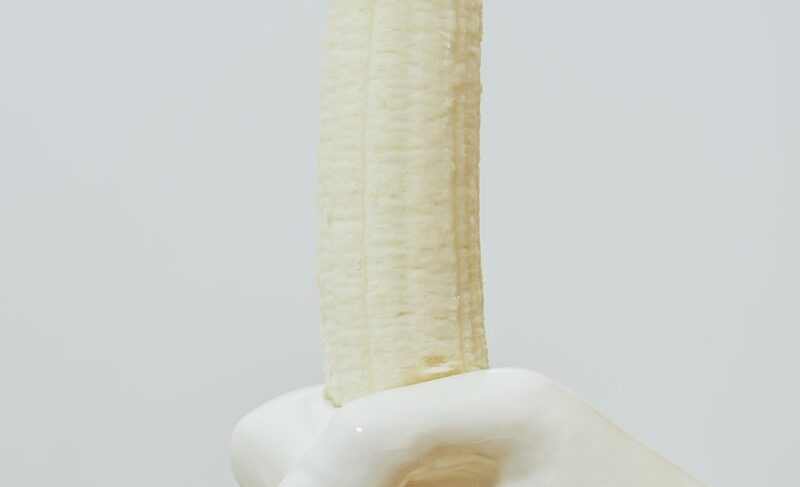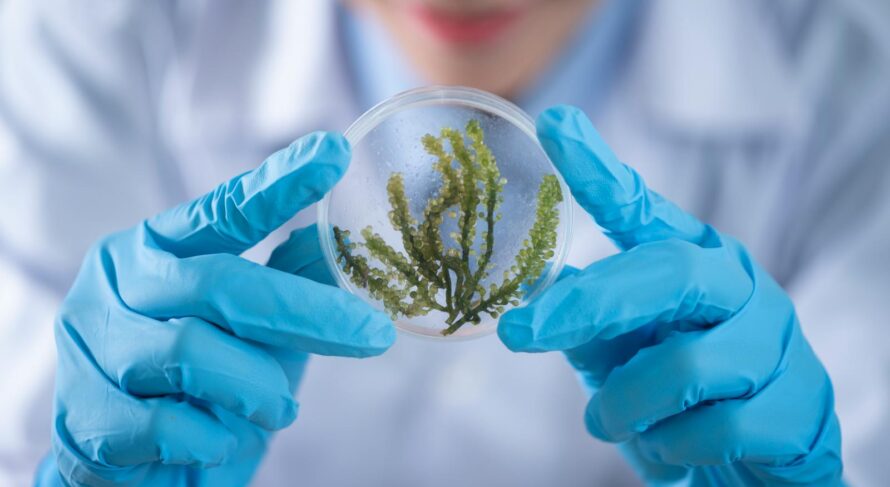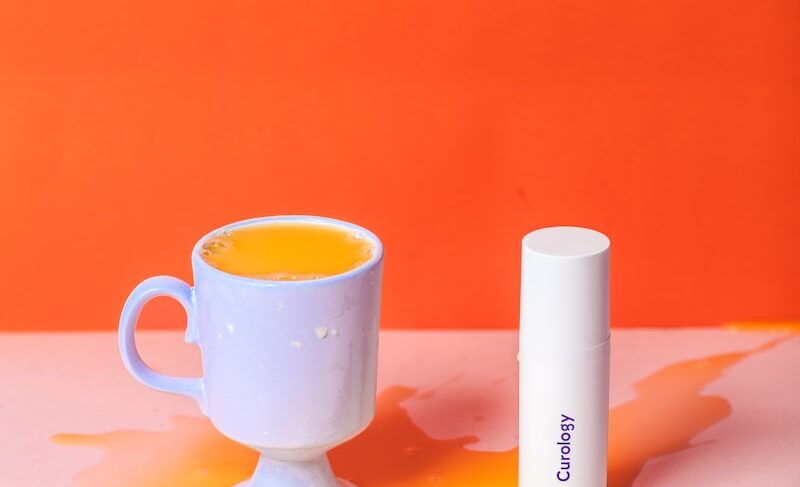Is Masturbation a Sin? Debunking Myths and Exploring the Science, Religion, and Ethics Behind Self-Pleasure

Key Takeaways:
- Masturbation and Morality: Whether masturbation is a sin is influenced by personal beliefs, cultural context, and religious teachings, with varied views across societies.
- Scientific Viewpoint: From a health perspective, masturbation is a natural and common activity, not inherently harmful, and offers several health benefits.
- Religious Views: Different religions have diverse teachings on masturbation, with some condemning it, while others accept it under certain circumstances.
- Psychological and Social Impact: Masturbation can have positive effects on mental health, self-esteem, and emotional well-being, while also affecting relationships.
- Safety and Myths: Common myths about masturbation are often unsubstantiated, and practicing safe, hygienic self-pleasure is crucial for avoiding risks.
Table of Contents
- Introduction
- What is Masturbation?
- Masturbation from a Scientific Perspective
- Religious Teachings on Masturbation
- Ethical and Moral Considerations
- The Role of Masturbation in Sexual Health
- Masturbation Myths Debunked
- How to Practice Masturbation Safely
- Frequently Asked Questions
- Conclusion
1. Introduction
Masturbation is often considered a taboo subject in many societies, but understanding it is essential to appreciating human sexuality and maintaining healthy sexual practices. As a natural act, masturbation is part of most people’s sexual experience. However, the question arises—is masturbation a sin? This article aims to provide an unbiased and comprehensive examination of masturbation, exploring the science behind it, religious views, cultural perspectives, and common myths.
Masturbation is not only a natural way to relieve sexual tension but can also play an important role in improving mental health and fostering sexual wellness. It’s essential to take a nuanced approach, considering both the benefits and the challenges it may pose for individuals, depending on their cultural background, religious views, and personal experiences.

2. What is Masturbation?
Definition: Masturbation is the act of stimulating one’s own genitals for sexual pleasure. It is a normal and healthy activity practiced by individuals of all genders. For some, masturbation is an act of self-exploration, while for others, it serves as a way to relieve stress or maintain sexual function. Masturbation is often viewed as a personal and private experience, allowing individuals to better understand their own bodies and sexual responses.
Common Myths About Masturbation: Many myths have been perpetuated over the years regarding masturbation. It is essential to debunk these misconceptions to provide accurate information for individuals seeking to improve their sexual health.
- Myth 1: Masturbation causes infertility.
- Fact: There is no scientific evidence to suggest that masturbation causes infertility. In fact, regular ejaculation, whether through masturbation or sex, can promote healthy sperm production.
- Myth 2: Masturbation is always shameful or immoral.
- Fact: Masturbation is a natural act that does not inherently carry moral or ethical consequences. While cultural and religious views vary, there is nothing inherently wrong with the act itself.
- Myth 3: Masturbation leads to addiction.
- Fact: Like any behavior, excessive masturbation can become problematic if it interferes with daily life or relationships. However, masturbation in moderation is healthy and does not lead to addiction.
Understanding the true nature of masturbation can help individuals feel more comfortable with their bodies and make informed decisions about their sexual health.
3. Masturbation from a Scientific Perspective
Health Benefits of Masturbation: Masturbation is not only a pleasurable activity but also offers various health benefits. Numerous studies have shown that regular masturbation can contribute to both physical and mental well-being.
- Stress Relief: Masturbation can act as a natural stress reliever. The release of endorphins during orgasm can reduce stress and promote relaxation.
- Improved Sleep: Many individuals report better sleep quality after masturbating. The relaxation that follows orgasm can help individuals fall asleep faster and enjoy deeper rest.
- Better Mood Regulation: Masturbation can also help improve mood and alleviate anxiety. The brain’s release of dopamine during orgasm can help regulate emotions and foster a sense of well-being.
- Enhanced Sexual Function: Regular masturbation can improve sexual function by increasing libido and enhancing orgasm quality. It also helps individuals become more comfortable with their sexual desires and responses.
Psychological Benefits: Beyond the physical benefits, masturbation can have a positive impact on mental health. Research supports that masturbation:
- Reduces anxiety and helps individuals feel more at ease with their bodies.
- Enhances self-esteem by allowing individuals to explore their sexual preferences and desires.
- Provides a sense of self-care and autonomy, which can improve overall emotional well-being.
Scientific studies, including research from the Kinsey Institute (1948), support the notion that masturbation is a normal, healthy sexual behavior with no inherent negative consequences.
4. Religious Teachings on Masturbation
Religious teachings on masturbation vary significantly, and the perspectives on masturbation being a sin are often influenced by cultural interpretations of religious texts. Below is an overview of how various religions approach the topic of masturbation.
Christianity:
Christianity has diverse views on masturbation depending on the denomination. Generally, it is not explicitly mentioned in the Bible, leading to various interpretations. Some Christian groups believe that masturbation is a sin based on broader teachings about sexual morality, while others suggest that it can be acceptable if it does not lead to sinful thoughts or behavior. Catholic teachings, for instance, may view masturbation as a sin if it fosters lustful thoughts but also emphasize the importance of grace and forgiveness.
Islam:
In Islam, masturbation is generally considered haram (forbidden) in most circumstances. However, there are differing views among scholars. Some Islamic scholars allow masturbation under certain conditions, such as when it prevents individuals from committing adultery or other forbidden sexual acts. The majority of scholars argue that it is better to avoid masturbation but that it is not a major sin.
Judaism:
Judaism’s views on masturbation are nuanced. The Torah does not explicitly forbid masturbation, but some interpretations of Jewish law suggest it may be forbidden because of the commandment to “be fruitful and multiply.” However, some Jewish scholars allow masturbation in specific circumstances, particularly for those who are not married or who face difficulties in their sexual relationships.
Buddhism:
Buddhism focuses more on mindfulness and detachment from desires. Masturbation is not explicitly condemned, but excessive indulgence in any desire, including sexual urges, may be viewed as a distraction from spiritual development. Buddhism encourages individuals to be mindful of their sexual actions and to maintain balance and self-control.
Other Religions:
Religions such as Hinduism, Taoism, and Confucianism generally view masturbation through the lens of self-control and discipline. While masturbation is not strictly forbidden, these traditions often emphasize the importance of moderation and the balance between pleasure and spiritual growth.
5. Ethical and Moral Considerations
Cultural Views on Masturbation: In many cultures, masturbation is either stigmatized or viewed as a taboo subject. However, these attitudes are changing, particularly as sexual health education improves globally. In some cultures, masturbation is seen as a healthy and natural part of sexual development, while in others, it may be viewed as morally wrong or shameful.
Masturbation and Self-control: One of the most common ethical concerns regarding masturbation is the idea of self-control. Some religious and cultural teachings hold that masturbation is morally wrong because it is seen as an act that gives in to lustful desires. However, in modern contexts, many view masturbation as a healthy form of self-exploration and sexual release.
Masturbation and Addiction: It is important to recognize the distinction between healthy masturbation and compulsive behavior. Masturbation becomes problematic when it interferes with daily life, work, relationships, or emotional well-being. When practiced in moderation, masturbation is typically harmless, but individuals should seek help if they feel it is becoming an unhealthy obsession.

6. The Role of Masturbation in Sexual Health
Sexual Exploration: Masturbation serves as a powerful tool for sexual self-exploration. It allows individuals to discover what feels good to them without the pressures of another person’s expectations. Understanding your body, sexual preferences, and desires can make you a more confident lover and improve your intimate relationships. The freedom to experiment with different techniques and sensations—whether through manual stimulation or the use of sex toys—can help individuals better communicate their needs in a partnered sexual relationship.
By engaging in regular masturbation, individuals can understand their own sexual boundaries and develop a more positive body image. This is particularly important for those who may experience shame or discomfort around their sexuality. Masturbation allows for safe exploration that builds self-awareness and promotes a healthy relationship with one’s own body.
Masturbation and Safe Sex Practices: Masturbation is not only a pleasurable activity but also a safer sexual practice. Compared to partnered sex, masturbation eliminates the risk of sexually transmitted infections (STIs) and unwanted pregnancies. For those who are not ready or able to engage in sexual intercourse, masturbation offers an outlet to satisfy sexual needs in a safe, risk-free way.
Masturbation can also provide a healthy alternative when a partner is unavailable or when a couple seeks to explore individual sexual satisfaction alongside their shared intimacy. It can promote sexual health by maintaining libido and improving sexual function, particularly for those who may face challenges in partnered sex.
How Masturbation Relates to Safe Sex: Safe sex practices go beyond just using protection during intercourse. They also include knowing your body, understanding sexual health, and engaging in healthy sexual habits. Masturbation encourages individuals to learn about their desires and sexual boundaries, reducing the likelihood of risky sexual behavior. For people who may feel uncertain about their sexual preferences, masturbation serves as a non-judgmental way to gain confidence and knowledge about their sexual health.
7. Masturbation Myths Debunked
There are many persistent myths about masturbation that can lead to confusion or guilt. Let’s take a closer look at some of the most common ones and clear up the misconceptions:
- Myth 1: Masturbation causes blindness or hair loss.
- Fact: This myth has been debunked by both scientific studies and expert opinions. Masturbation does not cause physical damage, such as blindness or hair loss. These myths originated in the 19th century as a way to shame and control sexual expression. In reality, masturbation is a completely safe and natural act when practiced in moderation.
- Myth 2: Masturbation is only for those who cannot find a sexual partner.
- Fact: Masturbation is a normal activity that people of all relationship statuses engage in. Whether single or partnered, people use masturbation to satisfy sexual urges and to maintain sexual health. It is not a sign of loneliness or a lack of desire for intimacy but rather a natural and healthy part of sexual exploration.
- Myth 3: Masturbation leads to addiction or erectile dysfunction.
- Fact: There is no evidence to suggest that masturbation causes addiction or erectile dysfunction (ED). Masturbation is a healthy sexual behavior, and ED is more likely to be caused by factors such as stress, underlying health conditions, or psychological factors, not by masturbation. If an individual is concerned about their sexual health, it’s best to consult a healthcare professional.
Scientific Evidence to Refute These Myths: Research has consistently shown that masturbation is not harmful. According to studies published by reputable sources such as the Kinsey Institute and the Journal of Sexual Medicine, masturbation has no negative long-term effects on health. On the contrary, it is a normal sexual activity that can actually contribute to better sexual function, emotional well-being, and mental health.

8. How to Practice Masturbation Safely
When it comes to self-pleasure, safety should always be a priority. Although masturbation is a natural and healthy activity, taking precautions can ensure it remains a positive and enjoyable experience. Below are some key hygiene and safety tips, along with advice on choosing the right tools.
Hygiene and Safety Tips:
Keeping your toys and your body clean is essential to prevent any potential infections or irritations. Here are some guidelines to ensure a safe masturbation routine:
- Wash Your Hands: Always start by washing your hands thoroughly before and after masturbation. This simple act can help minimize the risk of transferring bacteria or germs from your hands to sensitive areas of the body.
- Clean Your Toys: Whether you use a vibrator, dildo, or other toys, it’s important to clean them before and after each use. Use mild, body-safe cleansers designed for toys, or a solution of warm water and mild soap. For added safety, consider using toy wipes or sprays made for sanitizing, which can remove bacteria and residue without damaging the toy material.
- Dry Thoroughly: After cleaning your toys, make sure to dry them completely with a clean, soft cloth. Some toys, particularly those made from porous materials, can trap moisture, which may lead to bacterial growth if left damp.
- Use Lubrication: Lubricants are not only essential for comfort but also for preventing irritation or injury. If you’re using sex toys, consider silicone- or water-based lubricants that match the material of the toy. For example, avoid oil-based lubricants with silicone toys, as this can damage the surface and reduce their effectiveness.
Choosing the Right Tools:
Sex toys can significantly enhance the pleasure and comfort of masturbation. But choosing the right tools can make all the difference in your experience. Here’s a quick guide to help you make an informed choice:
- For Solo Play: If you’re new to using toys, start with something simple like a basic vibrator, which can offer different settings for personalized pleasure. These are generally easy to use and come in various materials, including body-safe silicone, which is gentle on the skin.
- For Exploration: If you’re looking to explore different sensations, you might want to try different types of toys, such as dildos, anal toys, or strokers. These can offer unique experiences that you can incorporate into your solo sessions.
- For Couples: Vibrators and other toys can also be used in partnered play, adding an extra element of excitement and intimacy. Many couples enjoy using toys to explore new forms of pleasure and enhance their connection.
When choosing toys, always make sure to purchase from reputable stores that offer high-quality, body-safe materials. Websites like Lovehoney, Adam & Eve, Babeland, and our own Sextoyforyou.com provide a wide selection of safe, high-quality products that can fit any preference or need.
9. Frequently Asked Questions (FAQ)
Here are some of the most common questions people have about masturbation, sexual health, and the safe use of sex toys.
Is Masturbation Normal? Absolutely! Masturbation is a normal and healthy activity that most people engage in at some point in their lives. Studies show that the vast majority of both men and women masturbate, with no significant negative effects on health. In fact, it’s widely recognized as a form of sexual self-care that helps you better understand your body and its needs.
Is Masturbation Harmful? For the vast majority of individuals, masturbation is not harmful. It can provide various health benefits, including stress relief, better sleep, and enhanced mood. However, as with anything, moderation is key. It becomes problematic only if it interferes with daily life or is done compulsively, to the detriment of personal relationships or responsibilities.
Can Masturbation Affect Your Relationships? Masturbation, when practiced in moderation, generally does not have a negative impact on relationships. In fact, many couples find that self-pleasure can improve intimacy by helping partners better understand their desires and communicate openly about their sexual needs. It can be an enriching experience that fosters trust and communication between partners.
How Often Should I Masturbate? There’s no “one-size-fits-all” answer here. The frequency of masturbation depends on individual preferences and needs. Some people may do it once a week, while others may enjoy it more frequently. It’s essential to listen to your body and do what feels right for you without pressure or guilt.
Is Masturbation a Form of Self-care? Yes, masturbation can be a form of self-care. It allows you to tune into your body, release tension, and experience pleasure. Just like any other form of self-care, masturbation can contribute to emotional well-being and mental health. It is essential to remove the stigma associated with it and embrace it as part of a holistic approach to health and wellness.
10. Conclusion
In conclusion, masturbation is a normal and healthy activity that can benefit both your physical and mental well-being. The stigma around it is largely outdated, and the more we talk openly about sexual health, the better we can all navigate these natural aspects of our lives.
Whether you’re engaging in self-pleasure for relaxation, stress relief, or simply to explore your own desires, it’s crucial to approach masturbation with a positive and informed mindset.
Remember, taking care of your sexual health is just as important as any other aspect of wellness. Make sure to use safe practices, choose quality toys, and don’t hesitate to seek advice or resources from trusted sources. Websites like Lovehoney, Adam & Eve, Babeland, and Sextoyforyou.com offer great options to explore and enhance your self-care routine.
Embrace self-pleasure without shame, and start your journey toward a healthier, happier sexual life today!
References (APA Style):
-
- Kinsey Institute (1948). Sexual Behavior in the Human Male.
- Source: Kinsey Institute – Sexual Behavior
- This classic study by Alfred Kinsey and his colleagues remains one of the most influential works on human sexuality, providing insights into masturbation and sexual behaviors. For detailed research and resources, the Kinsey Institute’s website is a trusted authority in sexual health studies.
- American Psychological Association (2017). Guidelines for Psychological Practice with Lesbian, Gay, and Bisexual Clients.
- Source: APA – Sexuality and Mental Health
- The APA provides guidelines on how mental health professionals should approach sexual health, including masturbation and other sexual behaviors, in LGBTQ+ clients, addressing the psychological and emotional aspects of sexual health.
- World Health Organization (2019). Sexual and Reproductive Health and Rights.
- Source: WHO – Sexual Health
- The World Health Organization’s page on sexual and reproductive health offers globally recognized guidelines, including perspectives on masturbation as part of sexual well-being and health.
- Journal of Sexual Medicine (2020). Psychological and Health Benefits of Masturbation.
- Source: Journal of Sexual Medicine – Masturbation Benefits
- This peer-reviewed journal offers research on the physical and psychological benefits of masturbation, including its effects on mood, stress, and overall mental health.
- Islamic Research Foundation (2016). The Islamic Perspective on Masturbation.
- Source: Islamic Research Foundation – Masturbation
- A scholarly discussion about the Islamic perspective on masturbation, offering detailed information from religious texts and interpretations by various Islamic scholars.
- Babeland Blog – Exploring Masturbation and Sexual Health.
- Source: Babeland Blog – Masturbation
- Babeland’s blog offers expert advice on sexual health, including masturbation. They discuss myths, safety tips, and how masturbation can be an important part of sexual wellness.
- Lovehoney – Masturbation Myths and Facts.
- Source: Lovehoney – Masturbation Myths
- Lovehoney provides information on sexual health and common myths surrounding masturbation, as well as tips for practicing safe and enjoyable self-pleasure.
- Planned Parenthood – Masturbation: What You Need to Know.
- Source: Planned Parenthood – Masturbation
- Planned Parenthood offers accurate, non-judgmental information about masturbation, debunking myths and providing facts on how it’s a normal, healthy part of sexual development.
- Kinsey Institute (1948). Sexual Behavior in the Human Male.









































































